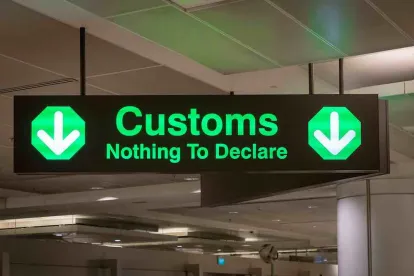2 February 2023. The United States Department of Justice (DOJ) and U.S. Customs and Border Protection (CBP) are becoming increasingly serious in their efforts to root out various type of customs fraud. In the most recent example, they settled a case against vitamin importer International Vitamin Corporation (IVC) for $22.8 million in which it was alleged the IVC misclassified numerous products that it imported from China into the United States. As part of the settlement, IVC admitted that over multiple years it misclassified 32 products as duty-free items, despite being warned by customs officials and an independent consultant that they were incorrectly classified.
The case began with a whistleblower, a former consultant who had uncovered the fraud. Evasion of duties and tariffs can be a violation of the federal statute known as the False Claims Act. Under that law, a private individual can bring a case in the name of the government to recover unpaid duties – a type of lawsuit known as a “qui tam” case. When the case is filed, it is secret, and only DOJ and CBP will know about it while they investigate. If the case is successful, the whistleblower receives, as a reward, a share of whatever the government recovers. The share is anywhere from 15% to 30% depending on a variety of factors, including the stage of the case at which the recovery occurs. In the IVC case, the amount paid by DOJ to the whistleblower was reportedly $4.5 million – just under 20% of the amount paid by IVC – which is typical in cases that the government is able to settle without substantial litigation.
IVC imported vitamins and nutritional supplements from China. The whistleblower filed a qui tam lawsuit against the company in 2019 accusing them of misclassifying 32 of its products under the Harmonized Tariff Schedule (HTS). They alleged that IVC had been avoiding paying necessary tariffs on these products since 2015, without making any effort to rectify their actions after acknowledging internally in 2019 that they owed millions in unpaid duties. As part of the settlement, the importer admitted that it knowingly provided the wrong classification information to its customs brokers, and the customs brokers then submitted that false information to CBP on entry documents. IVC claimed its products were “medicaments and vitamins” that were not subject to duties, when instead the more accurate classification was food preparations. Despite being advised by a consultant that it had incorrectly classified its products, IVC continued to use the wrong classifications and did not make any effort to pay up for the products it had imported under false classifications.
Improper classification is only one of the types of customs fraud that can be successfully pursued in a qui tam case under the False Claims Act. Many other types of customs fraud also violate that law. Undervaluation of imported goods, which often involves the use of fake invoices, is one example. Another is evasion of tariffs imposed under Anti-Dumping/Countervailing Duty orders, which can occur either through lying about the nature of the products being imported and misclassification under the HTS codes, or by lying about the country-of-origin of the products, which is often accompanied by transshipment of the goods through third countries not subject to the AD/CVD orders. More recently, evasion of the so-called “Section 301 tariffs”—the current 25% tariffs on a wide variety of Chinese-made products—has become rampant and is of particular concern to the government; as with AD/CVD orders, Section 301 evasion occurs either by misclassification or transshipment of the products through third countries. Finally, all products imported into the United States must be properly marked with country of origin, and failure to properly mark imported products can result in imposition of an extra 10% duty known as a “marking duty.”
The False Claims Act is a powerful tool that allows private citizens to root out fraud and hold wrongdoers accountable. As duties and tariffs become an increasingly important tool in international relations, and a larger and larger source of revenue for the government, the role of customs fraud whistleblowers has increased in importance.




 />i
/>i

